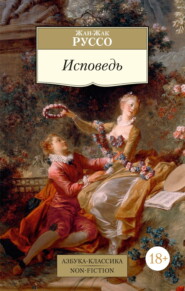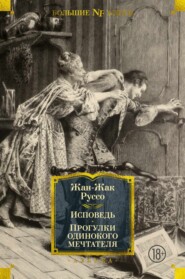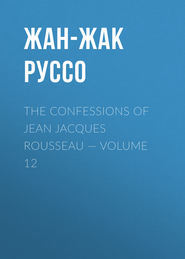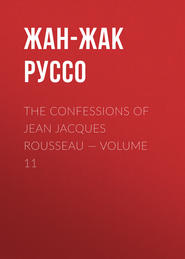По всем вопросам обращайтесь на: info@litportal.ru
(©) 2003-2025.
✖
The Confessions of Jean Jacques Rousseau — Volume 07
Настройки чтения
Размер шрифта
Высота строк
Поля
During my convalescence I had leisure to reflect upon my situation, and to lament my timidity, weakness and indolence; these, notwithstanding the fire with which I found myself inflamed, left me to languish in an inactivity of mind, continually on the verge of misery. The evening preceding the day on which I was taken ill, I went to an opera by Royer; the name I have forgotten. Notwithstanding my prejudice in favor of the talents of others, which has ever made me distrustful of my own, I still thought the music feeble, and devoid of animation and invention. I sometimes had the vanity to flatter myself: I think I could do better than that. But the terrible idea I had formed of the composition of an opera, and the importance I heard men of the profession affix to such an undertaking, instantly discouraged me, and made me blush at having so much as thought of it. Besides, where was I to find a person to write the words, and one who would give himself the trouble of turning the poetry to my liking? These ideas of music and the opera had possession of my mind during my illness, and in the delirium of my fever I composed songs, duets, and choruses. I am certain I composed two or three little pieces, 'di prima infenzione', perhaps worthy of the admiration of masters, could they have heard them executed. Oh, could an account be taken of the dreams of a man in a fever, what great and sublime things would sometimes proceed from his delirium!
These subjects of music and opera still engaged my attention during my convalescence, but my ideas were less energetic. Long and frequent meditations, and which were often involuntary, and made such an impression upon my mind that I resolved to attempt both words and music. This was not the first time I had undertaken so difficult a task. Whilst I was at Chambery I had composed an opera entitled 'Iphis and Anaxarete', which I had the good sense to throw into the fire. At Lyons I had composed another, entitled 'La Decouverte du Nouveau Monde', which, after having read it to M. Bordes, the Abbes Malby, Trublet, and others, had met the same fate, notwithstanding I had set the prologue and the first act to music, and although David, after examining the composition, had told me there were passages in it worthy of Buononcini.
Before I began the work I took time to consider of my plan. In a heroic ballet I proposed three different subjects, in three acts, detached from each other, set to music of a different character, taking for each subject the amours of a poet. I entitled this opera Les Muses Galantes. My first act, in music strongly characterized, was Tasso; the second in tender harmony, Ovid; and the third, entitled Anacreon, was to partake of the gayety of the dithyrambus. I tried my skill on the first act, and applied to it with an ardor which, for the first time, made me feel the delightful sensation produced by the creative power of composition. One evening, as I entered the opera, feeling myself strongly incited and overpowered by my ideas, I put my money again into my pocket, returned to my apartment, locked the door, and, having close drawn all the curtains, that every ray of light might be excluded, I went to bed, abandoning myself entirely to this musical and poetical 'oestrum', and in seven or eight hours rapidly composed the greatest part of an act. I can truly say my love for the Princess of Ferrara (for I was Tasso for the moment) and my noble and lofty sentiment with respect to her unjust brother, procured me a night a hundred times more delicious than one passed in the arms of the princess would have been. In the morning but a very little of what I had done remained in my head, but this little, almost effaced by sleep and lassitude, still sufficiently evinced the energy of the pieces of which it was the scattered remains.
Другие электронные книги автора Жан-Жак Руссо
Другие аудиокниги автора Жан-Жак Руссо
Исповедь




 0
0












